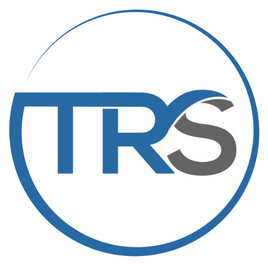How to recruit for Temporary, Permanent, and Contract Staff
When your business relies on a steady supply of skilled tradespeople or technical professionals, finding the right recruitment partner can make or break your operational success. Whether you’re scaling up for new projects, managing seasonal demand, or looking to reduce turnover, the right recruitment approach can address your staffing challenges effectively. In this article, we’ll guide…
When your business relies on a steady supply of skilled tradespeople or technical professionals, finding the right recruitment partner can make or break your operational success. Whether you’re scaling up for new projects, managing seasonal demand, or looking to reduce turnover, the right recruitment approach can address your staffing challenges effectively. In this article, we’ll guide you on how to secure the right talent while optimising workforce costs and retention.
Define Your Staffing Needs Clearly
Hiring the right people is more challenging than ever, especially within industries that demand technical expertise and skilled trades. The talent shortage is real, and businesses often struggle to maintain efficiency while balancing their costs.
Whether you’re a Hiring Manager, HR Director, or a C-level executive, understanding how to approach temporary, permanent, and contract staffing can help you build a sustainable workforce that aligns with your operational goals. Here’s a step-by-step guide to streamline your staffing solutions.
Define Your Staffing Needs Clearly
Before jumping into recruitment, identify your specific workforce and role requirements. This includes assessing the roles you need, the skills required, and whether temporary, permanent, or contract solutions are most suitable.
Temporary Staffing: Ideal for short-term projects or seasonal demands. For example, a manufacturing company ramping up production for peak seasons can benefit from temporary workers, such as the demand for boilermakers and mechanical fitters
Permanent Staffing: Best for roles critical to your long-term operational success, such as operations managers or logistics coordinators.
Contract Staffing: Useful for specialised projects where expertise is required for a fixed duration, such as hiring welders or auto electricians for a specific build.
Have clear definitions so you and your recruitment partner are aligned on expectations, reducing time to hire and ensuring better candidate matches.
Partner with a Recruitment Specialist in Your Industry
Choosing a recruitment partner who understands the specifics of your industry is vital to sourcing quality candidates. Look for a provider with proven expertise in technical and skilled trade roles.
For example:
• Manufacturing and Defence Manufacturing often require compliance with strict safety and regulatory standards.
• Logistics and Warehousing may need candidates who excel in efficiency and scalability for fast-paced environments.
A reputable recruitment agency with industry-specific knowledge will also have access to pre-vetted talent pools, making the hiring process faster and more reliable.
Leverage Flexible Payment and Staffing Options
Budget constraints often come into play when businesses are hiring, especially during periods of growth or market shifts. Recruitment agencies offering flexible payment options can help you manage costs without compromising quality.
Consider solutions such as:
• Payment Plans: Spread recruitment fees over time to align with cash flow.
• Scalable Staffing: Tailor your workforce size based on fluctuating operational demands. For instance, scaling up your team during project peaks and scaling down during off-peak periods.
These flexible solutions not only optimise your budget but also ensure you’re always equipped with the right talent when you need it.
Learn about TRS Flexible Payment Plans
Prioritise Candidate Retention and Quality
Hiring is only half the battle; retaining top talent is just as critical. High turnover can disrupt operations and inflate costs. Partner with a recruitment agency that prioritises candidate care and retention strategies.
Effective approaches include:
• Comprehensive vetting processes to ensure candidates are a strong fit for the role and your company culture.
• Onboarding support to help new hires integrate seamlessly.
• Regular check-ins to ensure candidate satisfaction, which fosters loyalty and reduces turnover.
By focusing on retention, you not only save on repeated hiring costs but also build a more engaged and committed workforce.
Ensure Compliance and Safety Standards Are Met
Industries like Defence Manufacturing and 3PL Logistics operate under stringent compliance and safety regulations. Non-compliance can lead to penalties, project delays, or worse, reputational damage. A good recruitment partner ensures all candidates meet these standards.
Key considerations include:
• Certification and training verification for roles like heavy diesel mechanics or mechanical fitters.
• Adherence to workplace health and safety (WHS) guidelines.
• Alignment with employment laws and industry-specific compliance requirements.
Recruitment partners who focus on these areas not only protect your business but also enhance your reputation as a reliable employer.
Finding the right recruitment partner for temporary, permanent, and contract staffing is essential for mid-sized to large enterprises aiming for sustainable growth. By defining your needs, partnering with industry specialists, and focusing on flexible, retention-oriented, and compliant solutions, you can overcome talent shortages, reduce turnover, and meet operational goals with ease.
Ready to build a workforce that drives results? Start by partnering with a recruitment agency that shares your commitment to quality, integrity, and long-term success. Let the right expertise elevate your hiring strategy.

